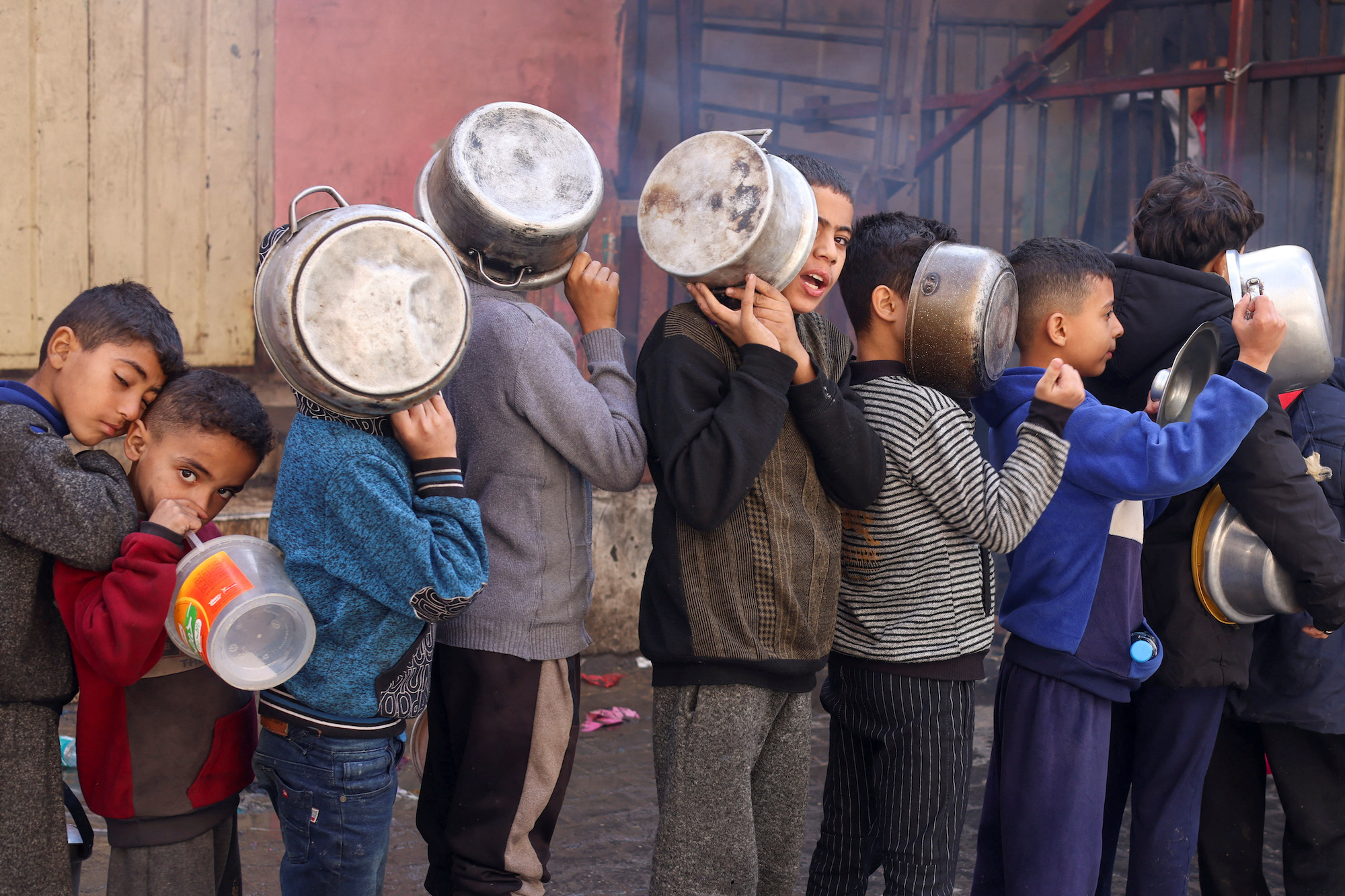Israel's Blockade: The Devastating Impact On Gaza's Health And Security

Table of Contents
The Crumbling Healthcare System in Gaza due to Israel's Blockade
The healthcare system in Gaza, already fragile before the blockade, has been systematically dismantled by Israel's restrictions on the import of essential supplies and the movement of personnel. This has resulted in a severe humanitarian crisis, characterized by shortages, understaffing, and the crippling effects of repeated conflict.
Limited Access to Essential Medicines and Medical Equipment
The blockade severely restricts the flow of essential medicines and medical equipment into Gaza. This results in critical shortages, directly impacting the health and well-being of the population.
- Oncology drugs: A severe shortage of cancer treatment drugs leads to delayed or impossible treatment, resulting in higher mortality rates among cancer patients.
- Dialysis supplies: Insufficient dialysis supplies limit access to life-saving treatment for individuals with kidney failure.
- Medical imaging equipment: A lack of modern diagnostic equipment, such as MRI and CT scanners, hinders accurate diagnoses and timely treatment of various illnesses.
- Infant formula and essential pediatric medications: Shortages impact the health of vulnerable infants and young children, increasing mortality and morbidity rates.
These shortages translate into tangible consequences: increased mortality rates, postponed surgeries, and a generally compromised healthcare system unable to meet the basic needs of the population. Children, the elderly, and those with chronic illnesses are disproportionately affected.
Understaffed and Under-resourced Hospitals and Clinics
The blockade has led to a brain drain of healthcare professionals from Gaza. Many skilled doctors and nurses have left in search of better opportunities and resources elsewhere, further weakening an already strained system.
- Brain Drain: The lack of professional development opportunities and adequate salaries drives healthcare professionals to seek employment abroad.
- Sanitation and Hygiene Challenges: Maintaining basic sanitation and hygiene standards in overcrowded hospitals becomes increasingly difficult, raising the risk of infections.
- Limited Specialized Care: Accessing specialized medical care, such as cardiac surgery or advanced oncology treatment, is extremely difficult due to the lack of infrastructure and qualified personnel.
The resulting understaffing and under-resourcing contribute to a cycle of decline, impacting the quality of care and the overall health outcomes for Gaza's population.
The Impact of Israeli Military Actions on Healthcare Facilities
Israeli military operations in Gaza frequently target or damage healthcare facilities, directly impacting the ability to provide essential services.
- Hospital Bombings: Hospitals and clinics have been damaged or destroyed during military conflicts, disrupting services and endangering patients and staff.
- Psychological Trauma: The constant threat of violence and the trauma experienced by healthcare workers and patients negatively impact mental health and the delivery of care.
- Emergency Care Challenges: Providing emergency care during periods of heightened conflict is significantly hampered by the security situation and the damage inflicted on healthcare infrastructure.
These actions further undermine the already weakened healthcare system and create additional barriers to accessing essential medical care.
The Deterioration of Security and Infrastructure in Gaza due to Israel's Blockade
Israel's blockade extends beyond healthcare, profoundly impacting Gaza's overall security and infrastructure. The resulting economic hardship, water and sanitation crisis, and restricted movement contribute to a precarious and unsustainable living environment.
Economic Hardship and Unemployment
The blockade severely restricts the movement of goods and access to international markets, leading to high unemployment rates and widespread poverty in Gaza.
- High Unemployment: Unemployment rates are consistently above 50%, leaving a significant portion of the population without a source of income.
- Limited Economic Activity: Restrictions on trade and movement hinder economic growth and the ability to rebuild damaged infrastructure.
- Poverty and Food Insecurity: Widespread poverty limits access to basic necessities, including food, leading to food insecurity and malnutrition.
The economic consequences of the blockade create a vicious cycle of poverty and insecurity, hindering the ability of the population to rebuild and improve their living conditions.
Water and Sanitation Crisis
Gaza faces a severe water and sanitation crisis, largely due to the blockade's restrictions on access to resources and infrastructure development.
- Water Scarcity: Access to clean drinking water is limited, leading to waterborne diseases and health problems.
- Wastewater Management: Inefficient wastewater management systems contribute to pollution and the spread of diseases.
- Impact on Agriculture: Limited access to water resources negatively impacts agricultural production and food security.
This crisis poses a significant threat to public health and overall well-being, creating a breeding ground for disease and exacerbating existing health challenges.
Restricted Movement and Freedom of Movement
The blockade imposes severe restrictions on the movement of people and goods, hindering access to essential services, education, and employment opportunities.
- Checkpoints and Restrictions: Numerous checkpoints and restrictions limit the movement of people, making it difficult to access healthcare, education, and work.
- Access to Resources: Restrictions on the movement of goods further exacerbate shortages of essential supplies and resources.
- Psychological and Social Impact: Living under constant restrictions takes a significant toll on the mental and social well-being of the population.
These restrictions limit opportunities and create a sense of isolation and hopelessness, further destabilizing the already fragile society.
Conclusion
Israel's blockade has had a catastrophic impact on Gaza's healthcare system and overall security. The resulting humanitarian crisis is characterized by widespread shortages of essential medicines and equipment, understaffed and under-resourced hospitals, and a population struggling with poverty, water scarcity, and restricted movement. The consequences of Israel's blockade are severe and far-reaching, requiring urgent attention and action. Understanding the consequences of Israel's blockade is crucial. Learn more and take action to support the people of Gaza, advocating for an end to the blockade and assisting humanitarian organizations working to alleviate the suffering of the Gazan people. Demand an end to Israel's blockade and help alleviate the suffering caused by this ongoing humanitarian crisis.

Featured Posts
-
 Ai Powered Podcast Creation Turning Mundane Scatological Data Into Engaging Content
May 11, 2025
Ai Powered Podcast Creation Turning Mundane Scatological Data Into Engaging Content
May 11, 2025 -
 Decouvrir Chantal Ladesou Une Icone De L Humour Francais
May 11, 2025
Decouvrir Chantal Ladesou Une Icone De L Humour Francais
May 11, 2025 -
 Nba Legend Magic Johnson Predicts Knicks Vs Pistons Winner
May 11, 2025
Nba Legend Magic Johnson Predicts Knicks Vs Pistons Winner
May 11, 2025 -
 Calvin Kleins Latest Campaign Lily Collins Stunning Photos
May 11, 2025
Calvin Kleins Latest Campaign Lily Collins Stunning Photos
May 11, 2025 -
 Presidente De Uruguay Regala Tres Toros A Xi Jinping Su Viaje A China
May 11, 2025
Presidente De Uruguay Regala Tres Toros A Xi Jinping Su Viaje A China
May 11, 2025
